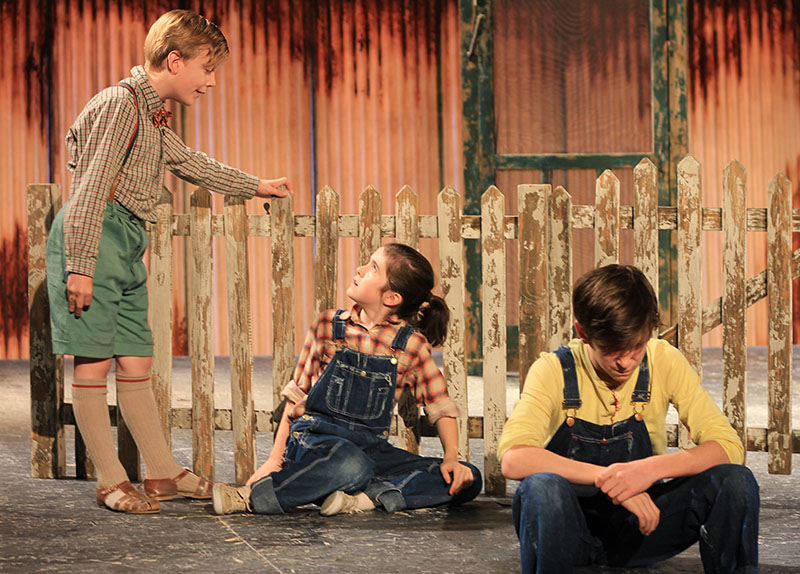We cry too much these days. Every Christmas, department stores and supermarkets squeeze us like sponges with their saccharine cinematic ads, greedy for our manipulated tears – and we give them freely, falling for their tricks. Radio Djs issue ‘mascara warnings’, prompting predictable floods of texts from listeners too keen to share with the nation how much a pop song has moved them on the school run.
And art should move us – good art, that sells nothing but itself. Music, theatre, cinema, dance… what else is it for but to evoke an emotion? But overused our tears lose their worth, which is why we shouldn’t give them up to grocery stores but keep them for the moments that truly deserve them.
Harper Lee was reduced to tears on seeing Gregory Peck star as Atticus Finch in the 1962 film adaptation of her novel, because he reminded her so sharply of her beloved father, Amasa, on whom she had based the character. But it’s Scout who steals our hearts in Christopher Sergel’s To Kill A Mockingbird, an exquisite stage adaptation of Lee’s soulful study of innocence and honour, which commenced a sell-out run at Cambridge Arts Theatre last night.
In the hot, dusty summer of 1930, six-year-old Scout and her older brother Jem become fascinated by stories of a man living in the spooky house across the street. Meanwhile, their father Atticus defends a black man in court accused of raping a white woman: a story which reveals the racial prejudices of the American Deep South.
A degree of trepidation sets in when going to see an adaptation of a book you love, especially when the central characters are children (just look at the early Harry Potter films…). But this stage production is approached with sensitivity and creativity, conjuring beautifully the rose-glow of Scout’s last summer of innocence thanks to imaginative staging – chalky pavements, a lifesize tree with tyre swing – and a large cast without a weak link among them.
The adults, dressed in denim scruffs, flit between reading from pages of first edition ‘Mockingbirds and enacting the tale, some occasionally picking up guitars to soundtrack the action.
Daniel Betts perfectly encapsulates the quiet integrity of Atticus, our slightly crumpled, weary hero whose honour inspires and humbles his children. Zackary Momoh is stunning as Tom Robinson, eyes shining with fear in the enthralling, desperate courtroom scene.
Meanwhile Ava Potter could not be more perfect in her big-hearted professional theatre debut as Scout. It’s Scout’s artless charm and childlike optimism which makes her one of literature’s most endearing protagonists, and which Ava personifies with unexpected, startling honesty. Nothing feels feigned; she wins laughs, almost unwittingly, for her worldly-wise lines and that brilliant ham costume, and broke my heart in the final scene in which she takes Boo Radley by the hand to walk him home. It’s clear this young actor is headed for greatness, though I hope she retains the humility which her character learns to value.
And it seems the company struck gold twice also finding Connor Brundish, who deserves a huge mention for his similarly remarkable, charming performance as chirpy neighbour Dill.
I’ll admit it was with moist eyes that I quietly slipped out of the theatre – maybe I’m just as bad as every Christmas commercial blubberer. But a play that truly moves its audience – whether to tears or to rise to their feet, as several rows did – must be hailed as a triumph. Art only sells itself, and I bought into this warm, raw, thoughtful production heart and soul. As long as they don’t bring out a novelty chocolate bar, I’ll feel no guilt in that.
:: To Kill A Mockingbird, Cambridge Arts Theatre, until 22 November. Limited ticket availability: see www.cambridgeartstheatre.com

